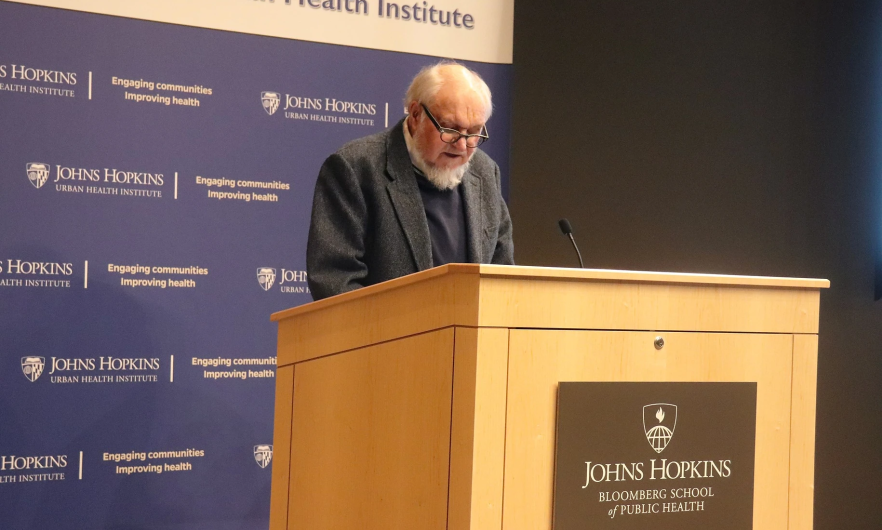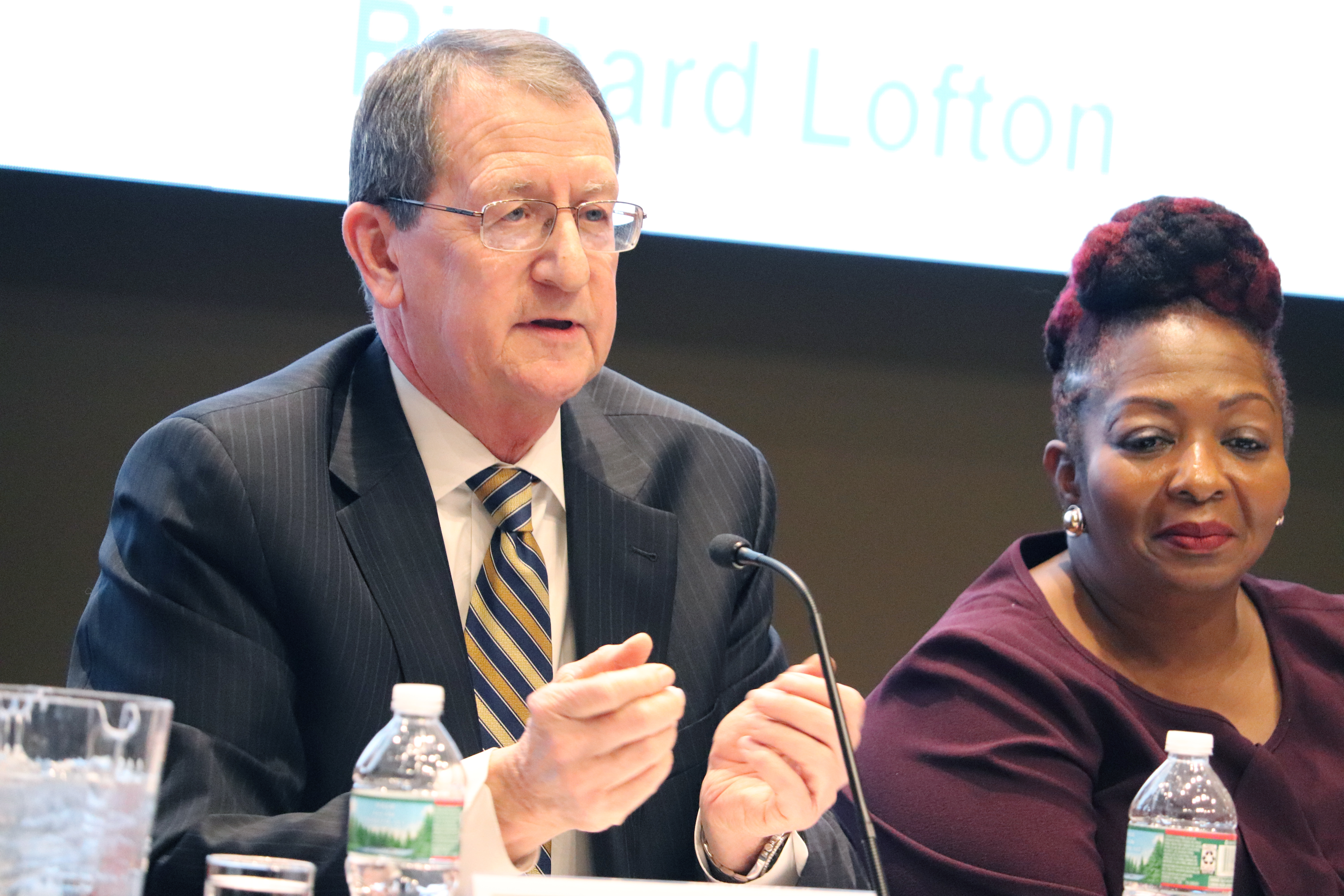The Ghosts of Johns Hopkins: A Conversation with Antero Pietila

“By putting all this and much more on the table, I hope to trigger discussion about the Johns Hopkins Institutions, islands of first world excellence in a city that increasingly exhibits third world dysfunctions.” – Antero Pietila
On November 20, faculty, students, and community members from across Baltimore gathered in Sommer Hall to participate in a discussion with veteran journalist and renowned author Antero Pietila and a panel of community and university leaders about Mr. Pietila's new book, The Ghosts of Johns Hopkins: The Life and Legacy That Shaped an American City”.
Which takes a close look at the life and hopes of Johns Hopkins the man and how the medical institutions created in his honor shaped and impacted the racial geography of Baltimore.
“My new book aims to explain Johns Hopkins and his legacy, the university, and the medical institutions and their place in a mutating city. In covering over 200 years in local history I want to provide readers with a frame work for understanding Baltimore and how it became what it is today”, said Mr. Pietila.

The conversation took a “put it all on the table” approach. Panelists not only shared their perspective about the relationship of Johns Hopkins institutions and Baltimore, but also talked about the life of the Baltimore business man, who, unlike many of his peers at the time, desired to see equality for all, especially within the health care system. Ronald R. Peterson, president emeritus of Johns Hopkins Health System echoed these sentiments, “Mr. Hopkins’ decision to support the development of a world class hospital that would indeed be accessible to all in need of health care services irrespective of color, religion, or ability to pay created hope for the hopeless”.
While many agreed Johns Hopkins request for a charity hospital to be built that catered to everyone highlighted the pioneer and abolitionist he was, it left readers and panelists discussing how the institution took a dramatic turn from this vision of equality.
“It isn’t enough to be proud that Johns Hopkins original intention was to serve the local population regardless of skin color. Nor is it enough to be proud of the fact that an orphan asylum for black children was part of the Hopkins bequest. Too much has happened since then that not only blemishes Hopkins record but routinely exposes it.", stated Professor Graham Mooney, associate professor at Johns Hopkins Department of the History of Medicine

Some of these blemishes that took place during Johns Hopkins Institutions' (JHI) darker moments in history were noted in Mr. Pietila’s book and throughout the discussion. Such as, JHI’s role in the forced displacement of residents (many of them being people of color), the segregation of black and white patients, the removal and testing of Henrietta Lacks immortal cells without consent, and Hopkins role in “robbing” graves and selling corpses to medical institutions along the East Coast for testing and research.

“You could’ve called Baltimore "Corpses R Us"! It wasn’t that we were just having people steal corpses from graves for our own institutions, but they were the primary suppliers, according to Antero’s book, for Harvard, Yale, Boston, and Atlanta.”, shared Rebecca Hoffberger founder and director of the American Visionary Arts Museum
The discussion allowed for community and Hopkins members to reflect on past relationships, the progress that has been made today, and hopes for the future.
“I am happier today that you (Antero) are challenging us to look into your book as a mirror. A mirror to the past and also looking at ourselves at this present time.”, stated Rev. Debra Hickman, CEO of Sisters Together and Reaching, Inc.
When the question was raised about elitism within Johns Hopkins, Rev. Hickman went on to discuss how her personal involvement with Hopkins, with the Urban Health Institute's Community-University Coordinating Council, the Center for Health Equity, and the Patient-Family Advisory Council, has helped to shift her views of institution leadership from being elitist to a desire to hear directly from the community.

In addition to recognizing the current efforts being made today, recommendations were given for how JHI can push towards a stronger relationship in the future with its neighbors. Professor Graham Mooney, shared this, “Hopkins can behave towards its hometown by making choices, choices that put social justice at the center of its activities.”

Mr. Peterson also had this to say, “If we are serious about making stronger bonds with the community the issue of trust must be re-addressed. We must recognize once and for all, responding as we do very well to the presence of disease, this is not enough […] we must continue to pursue meaningful measures through partnerships with other entities to address fundamental needs that can influence the health and well-being of our neighbors”.
When asked about hope for Baltimore, Mr. Pietila left us with this, “There is hope and there are challenges. The things that are happening now around Broadway and the things that are happening around Bayview, they give me hope because this is what the city needs, rotation that rejuvenates communities.”
To check out photos and videos from the event please visit our Facebook page and YouTube channel.
